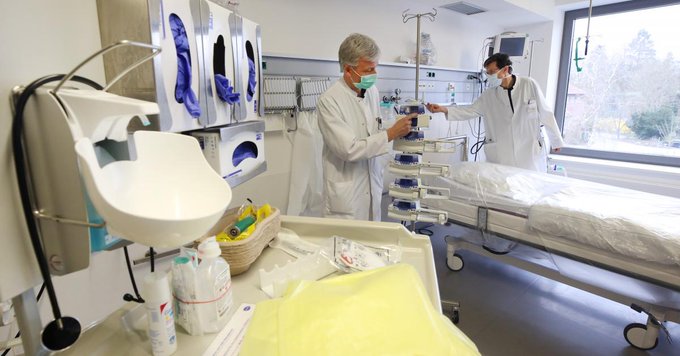Patents on new products could result in high prices and keep medicines and vaccines out of reach for people everywhere
The international medical humanitarian organization Doctors Without Borders/Médecins Sans Frontières (MSF) today called for no patents or profiteering on drugs, tests, or vaccines used in the COVID-19 pandemic. Governments must be prepared to suspend and override patents and to take other measures, such as price controls, to ensure availability, reduce prices, and save more lives from this disease caused by a novel coronavirus, said MSF. Companies must also do the right thing and not enforce patents on any new medicines that hit the market for COVID-19 as they stand in the way of generic manufacturers ready to create more affordable versions of medicines.
Already, Canada, Chile, Ecuador, and Germany have taken steps to make it easier to override patents by issuing “compulsory licenses” for COVID-19 medicines, vaccines, and other medical tools. Similarly, the government of Israel issued a compulsory license for patents on the medicine they were investigating for use for COVID-19. Compulsory licenses are tools countries can use to allow lower-cost versions of desperately-needed medicines to be supplied while those medicines are still under patent.
MSF is deeply concerned about access to forthcoming drugs, tests, and vaccines for COVID-19 in places where it works and in other countries affected by this pandemic.
“We know too well from our work around the world what it means to not be able to treat people in our care because a needed drug is just too expensive or simply not available,” said Dr. Márcio da Fonseca, infectious disease advisor at MSF’s Access Campaign. “In countries where pharmaceutical corporations enforce patents, we urge governments to set the wheels in motion to override these monopolies so they can ensure the supply of affordable drugs and save more lives.”
The profiteering off this pandemic has already begun. Gilead Sciences, which has a potential COVID-19 treatment candidate in clinical trials, recently tried to use a special designation from the US Food and Drug Administration that would have extended its monopoly on the drug, remdesivir, for more than 20 years in more than 70 countries where it has filed for patents. Gilead gave up these efforts following intense public criticism from civil society groups and MSF, but the company has yet to commit to not enforcing its patents globally. Preliminary results of clinical trials for remdesivir—which was developed with extensive public funding as a potential Ebola treatment—are expected in April.
“Gilead has no business profiteering from this pandemic and must commit to not enforce or claim its patents and other exclusive rights,” said Dana Gill, US policy advisor for MSF’s Access Campaign. “Otherwise, Gilead is setting itself up to charge whatever it wants for remdesivir during this global health crisis, and for years to come. This is even more outrageous when you consider the tremendous amount of taxpayer dollars and public resources that have already contributed to the research and development of remdesivir.”
US diagnostic test maker Cepheid provides another example of pandemic profiteering. The corporation just received US FDA Emergency Use Authorization for a rapid COVID-19 test (Xpert Xpress SARS-CoV-2) that delivers results in just 45 minutes, using existing testing machines that have been routinely used for tuberculosis (TB), HIV, and other diseases.
Cepheid just announced they will charge $19.80 per test in developing countries, including the world’s poorest countries where people live on less than two dollars per day. MSF and others’ research on Cepheid’s TB test—which uses a similar test cartridge for TB for which the corporation charges $10 in developing countries—shows that the cost of goods, including manufacturing, overhead, and other expenses, for each cartridge, is as low as $3, and therefore each test could be sold at a profit for $5.
“With a pandemic raging, now is not the time to test the highest prices the market will bear,” said Stijn Deborggraeve, diagnostics advisor at MSF’s Access Campaign. “We know now how critical testing is in this pandemic, so the tests need to be affordable for all countries.”
MSF warned that high prices and monopolies will result in the rationing of medicines, tests, and vaccines, which will only serve to prolong this pandemic.
“Pharmaceutical and diagnostics corporations are choosing to be part of the problem rather than part of the solution, showing that even in this acute global health crisis, they won’t do the right thing,” Gill said. “We strongly call on governments to recognize how many lives are on the line and use their powers to make medicines, tests, and vaccines available, accessible, and affordable for everyone.”






